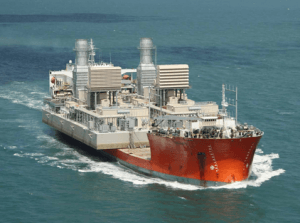Ghana has no structures to ‘tie-in’ barges to national grid – Sources

The energy crisis in Ghana is worsening by the day, and the government under pressure to deal with the issue doesn’t seem to be getting it right. It is acquiring barges but there is no infrastructure to make the barges work.
Sources within the energy sector and familiar with barges (barges are ships carrying power plants), have told ghanabusinessnews.com that there are no structures to connect power from barges onto the national grid.
“You need to tie-in the barges to the national grid, but we have no such structures in place, and considering the time the barges are expected into the country, we are not sure if the structures would be ready,” one source said.
Engineers at the Volta River Authority (VRA), the country’s power generator and GRIDCO, the power distribution company that would be expected to work with the barges won’t comment when contacted.
However, a source at the VRA said, “indeed, the barges would have to be ‘tied-in’ to the national grid, but it’s not clear how that could be done, because the infrastructure for doing that doesn’t exist in the country.”
Another source said, it is not clear where the barges would be docked, adding, “You also need security for the barges.”
Meanwhile, a source within the Ghana Armed Forces also spoke of hints of information that the barges would be put at the Tema Naval Base, but according to this source, the Ghana Navy has not been officially informed.
The Ghana government has ordered emergency barges with the capacity to generate a total of 1000 megawatts of electricity as the country’s power situation worsens.
The government is hoping to increase power generation from 2,300 to 5,000 megawatts by 2017.
Early in February this year, the government asked the Ghana National Petroleum Corporation (GNPC) to provide $100 million to acquire two emergency power barges from Turkey. The two barges, the Minister of Power, Dr. Kwabena Donkor had told Parliament are expected to generate 450 megawatts of power, and they are expected into the country by the end of April 2015.
Phone calls to the Power Minister on this matter were not answered.
By Emmanuel K. Dogbevi

I am wondering what fuel powers these barges?